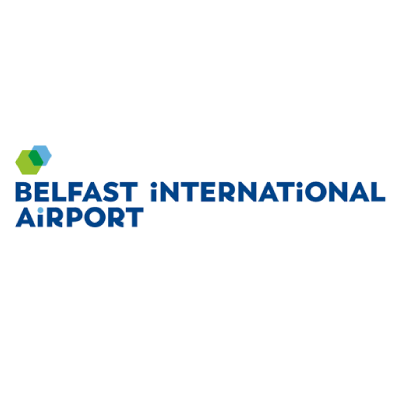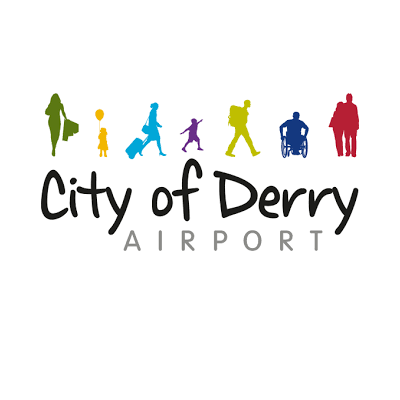The environment is big news at the moment. Concerns about rising seas, declining air quality and damage to animal, bird and insect populations regularly make headlines. In the UK, David Attenborough’s Blue Planet II contributed to a cultural shift around plastic consumption, and schoolchildren across the globe have been campaigning for climate change.
Small changes are creeping in: Sales of reusable coffee cups and water bottles have increased, plastic straws have been replaced with paper in many bars and restaurants, brands like Coca-Cola have devised sustainable packaging strategies.
The impulse to ‘go green’ is gaining momentum. According to a 2017 study by Global Web Index, half of digital consumers say that environmental concerns impact their purchasing decisions.
Millennials (age 24-35) are leading the way with this green revolution, driving the sustainability movement with lifestyle choices such as veganism. GWI’s survey shows that millennials are more likely than any other generation to say that they would pay more for eco-friendly or sustainable products. The focus is no longer solely on cost. This is hugely pertinent to the travel industry since millennials travel more than any other age demographic, with Generation Z (age 18-23) not far behind.
Brands are beginning to embrace the opportunity in these choices. UK sandwich chain Pret A Manger now has four all-vegetarian shops in London, and bakery chain, Greggs, has seen a 9.6% increase in sales since it introduced a vegan sausage roll.
The trend is clear. If millennials are more conscious than ever about how their purchases reflect their values, and Generation Z is following their lead, a long-term change is underway.
Airports in an eco-aware world
As environmental issues become more urgent, sustainability is emerging as a core theme for airports worldwide. Whilst it is inevitable that the number or airports will increase and that existing airports will expand to cater for a growing demand in travel, there is also a deepening awareness of best practice and innovation in technological implementation and sustainability strategies.
Improvements can come in many guises, including reduced energy consumption, noise and environmental management, waste reduction – even something as simple as providing a digital boarding pass to cut down on printing helps – and exploring renewable energies.
Key takeaways of the Airport Sustainability Summit, which took place in Asia in March 2019, included focus on operational efficiency, minimising the cost of investing in environmentally-friendly technologies, minimising carbon emissions, the development of waste management systems and facilitating growth to build a more sustainable and profit generating airport. While there are obvious challenges for airports in the design, planning and project management of ‘going green’, the economic and environmental benefits are clear.
It’s time to look to a future in which the benefits of air travel no longer come at a high price for the planet, and in doing so, to build trust-based relationships with an eco-conscious customer.
Carbon neutral
While carbon neutrality is an important issue for stakeholders, the initiatives aimed at reducing carbon emissions can represent a source of important savings in terms of energy use too. This translates to less spending and greater profitability in the long term.
ACI Europe’s Carbon Neutral scheme, which launched in 2008, now includes 209 airports, meaning that 41% of global passenger traffic is covered by a carbon neutral airport.
The scheme came as part of a wider action on climate change, where traditionally airports had focused on air quality, noise, water and biodiversity. Its immediate success can be gauged by its uptake. Within two years there were already 40 accredited airports in Europe. This was despite economic challenges at the time.
By 2014, the programme had been accepted globally, and it still shows no sign of slowing. In 2018, four new airports, Brussels, London Stansted, Rome Ciampino and Treviso, achieved carbon neutral accreditation. Each of these airports is reducing the emissions under its direct control as much as possible and offsetting any remaining emissions. These four airports represent over 65% of European air passenger traffic.
Between June 2017 and May 2018, accredited airports in Europe succeeded in collectively reducing the CO2 emissions under their direct control by 163,277 tonnes – a reduction of 7.6%.
This sort of good news is great for customer relationships. While carbon-neutrality is not by nature an area that attracts heavy competition between airports – in fact, according to Marina Bylinsky, Head of Environmental Strategy and Intermodality at ACI EUROPE, while airports do pay attention to each other’s certificates, there is generally a good amount of spontaneous knowledge and best practice sharing – positive environmental efforts will help eco-aware customers to choose your airport and give you a strong brand image.
By sending out an email sharing your new carbon-neutral status, you are letting travellers know that your airport is engaged with their concerns. Eco-aware customers will feel happy booking with you and people who live near to your airport will feel more confident that you are taking steps to improve their neighbourhood.
Using Rezcomm’s suite of CRM and automated marketing tools, you can even segment your email lists to directly target customers who are interested in the environment. The advanced machine learning in Rezcomm’s systems can help identify this group by using data about age, or information about previous purchases. For example, a customer who booked a hybrid or electric hire car or bought vegetarian food or a vegan cosmetic product in one of your airport’s on-site concessions is likely to be interested in ethical shopping.
Renewable energy
Advances in renewable technology have opened the way for airports to reduce their environmental impact. Cornwall Airport, Newquay is aiming to become one of Britain’s greenest airports by using solar energy, which it buys from the Kernow solar park at a reduced rate of 15% on retail price.
Boston Logan Airport uses renewable energy across the site, with solar energy powering its rental car centre, a green bus depot, terminals, parking and office buildings.
Tackling pollution
Boston Logan has also run a pioneering Air Quality Initiative since 2001. The airport promotes greener ground transport including high-occupancy vehicle use, less reliance on single-occupant vehicles and efficient access and parking options. There’s a hybrid cabs incentive and preferred parking and charging stations for hybrid vehicles.
Schemes like this are another good opportunity to build a sense of community around the airport.
Eco-friendly destinations
Ethical city breaks are a thing now. The new-styled ‘responsible traveller’ is shopping for holidays that don’t break the planet.
Oslo is a great example of a destination that is keeping up with the changing mood around environmental issues. The city has just been designated European Green Capital for 2019 thanks to its focus on sustainability.
Let’s look at a few ideas that can be applied to destination marketing where green travel is a selling point:
Sustainable activities
You can appeal to eco-aware travellers by promoting sustainable activities like walking, hiking and scenic trips on public transport such as ferries and trains. Provide a map for a city-centre walking tour and offer suggestions about bicycle hire.
Eco-friendly hotels
Partner with eco-certified hotel chains or independent hotels that support the local community. Hotels with a focus on cutting out single-use plastic and daily towel washing, or places serve food from sustainable sources will appeal to the environmentally conscious.
Ethical places to eat
Suggest restaurants that use ethically sourced and organic food, or even specialise in plant based, seasonal, vegetarian or vegan cuisine. This lets travellers know they can enjoy eating out without having to spend hours researching, and it gives them a window into the community too.
Green transport
Give tips on walking routes, bike rental schemes, stations and other sustainable transport within the city. You can also offer links to electric car hire companies. Make sure you provide plenty of eco-friendly ways to get to the airport too!
All of these destination tips provide a source for rich content that can be provided on your airport website or can form the basis of a destination marketing campaign with loads of great targeting options.
More green goals
Airports and airlines have a long way to go to be environmentally friendly. According to IATA, the average passenger creates 1.4kg of waste per journey. However, with a little innovation, eco-awareness can be introduced throughout the airport and passenger journey, as demonstrated in Tokyo Narita Airport’s 2017 Eco-Airport plan:
In Terminals
- Introduce waste sorting to promote recycling
- Install renewable energy sources including solar panels and geothermal energy capabilities
- Re-use wastewater from restaurants and passenger facilities to fill toilet cisterns
- Encourage the use of sustainable containers and straws in on-site food and beverage concessions, for example, wooden cutlery instead of plastic and no single-use plastic sauce sachets.
On Taxiways
- Use energy efficient LED lighting
For Aircraft
- Introduce a noise-related landing charge system to encourage low-decibel aircraft
- Use a hangar-based noise reduction facility to cut down on aircraft testing noise
For vehicles
- Promote car sharing and use of low emissions vehicles
- Provide (and give priority to) electric vehicle charging stations and hydrogen stations
At Airport facilities
- Rainwater can be treated and used for cooling systems or flushing toilets
- Construction waste can be crushed and recycled as paving
Around the Airport
- Noise mitigation embankments and wooded buffer zones reduce the impact of the airport on the immediate environment
- Year-round environmental monitoring will ensure that potential problems such as noise, water and air pollution are minimised
Rezcomm’s provides pioneering ecommerce solutions for the airports and venues. To find out how we can help to future-proof your marketing strategy, reach more passengers and make more sales, contact the team today.






























